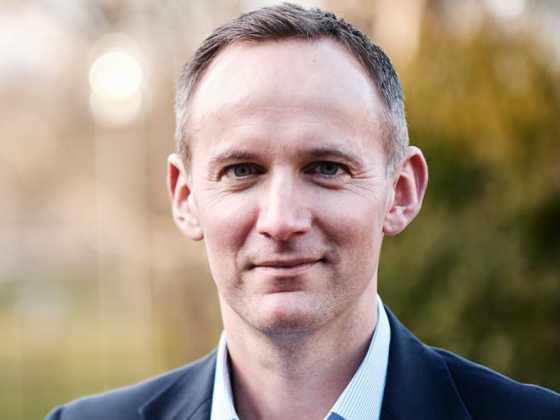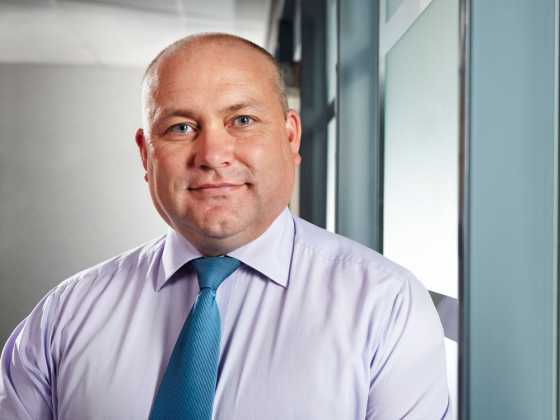Pointing London in the right direction
Blue Point London took over the Source London network of EV charge points back in September 2014. GreenFleet caught up with Cedric Bolloré, director, and Christophe Arnaud, managing director, to discuss what progress has been made thus far.
When Blue Point London, a subsidiary of the French Bolloré Group, took over the Source London network of electric vehicle charging points back in September 2014, it inherited what it described as a ‘broken’ system.
After launching successful EV charging networks and car sharing schemes in France, expectations were high for the Bolloré group to sort out London’s charging infrastructure, which had become notorious for unreliable, broken and malfunctioning charging points.
However, Blue Point has faced criticism for not providing an immediate ‘quick-fix’ for London’s EV users, with data suggesting two thirds of the EV charging points were going unused in the capital in January 2015 and roughly a third of charge points were still not operational as of February 2015.
Why the hold up?
When it took over the Source London network, Blue Point quickly found out that the network was not managed as one holistic system. Individual boroughs had individual contracts, which meant that Blue Point did not have the capability to put a comprehensive repair and management system in place.
In light of this, Blue Point began negotiating new contracts with London boroughs, the first in March 2015, when the London Borough of Sutton and the London Borough of Southwark signed contracts to give Blue Point full responsibility to repair and upgrade charging points on the network within their boroughs. This was followed by the Royal Borough of Kensington and Chelsea, the London Borough of Hackney and the Royal Borough of Greenwich, which all signed contracts in May 2015.
Blue Point has informed GreenFleet that the two most recent Boroughs to negotiate contracts are the London Borough of Lewisham and the London Borough of Hammersmith and Fulham. Following this, plans are now in place to expand the charge points in Lewisham to a total of 40, with an expansion of around 20 in Hammersmith and Fulham. Six more boroughs in the south west and the north west of London are now being targeting to sign contracts by the end of the year.
The ultimate aim is to get every borough of London to sign new contracts, giving full control over to Blue Point London, with a focus on ‘key boroughs’ such as Camden. However, it appears that this could be a lengthy process, with contract details needing to be negotiated with each individual borough.
What progress has been made?
As of August 2015, Blue Point had achieved 85 per cent charge point reliability, meaning 85 per cent of charge points are online at any one time, improving on the 60 per cent availability when it took control in 2014. This has been achieved due to a large investment of £10 million over the last year for repairs and upgrades.
The company has also committed to invest a further £100 million to improve the network. In the short term, Blue Point aims to expand the number of charge points to 1,000 by the final quarter of 2015, while also achieving the 95 per cent availability set out by Mayor of London Boris Johnson. The long‑term aim by 2018 is to expand the network to 6,000 charge points, with 98-99 per cent availability.
Blue Point has said this investment is aimed at supporting greater uptake of EVs, with company profits part of a long term strategy instead of a short term goal. While membership for the Source London network is currently only £5 a year for unlimited use, plans are in place to gradually start increasing charges. However, Blue Point has claimed that charges won’t exceed an average of £2 an hour, although individual charge prices will be dependent on location, with variables such as the cost of land for charing spaces effecting pricing.
Car Sharing Scheme
Blue Point is planning to promote the use of EVs to Londoners by introducing a car sharing scheme, following the model of the Autolib’ scheme that the Bolloré group currently runs in Paris.
The scheme will work in a way similar to the ‘Boris Bikes’ currently in use around the capital, with users able to pick up and drop off electric vehicles at designated charge points around London. Tests are currently underway in Hackney, with the first set of cars set to hit roads by the end of January 2016.
Blue Point sees this scheme as an important tool in promoting EV use, as it will give Londoners a low cost option to experience driving an EV and create usage where it doesn’t currently exist. The scheme will be rolled out with an initial batch of 100 cars, and then up to, but not exceeding, a ratio of 1:2 cars to charge points, to ensure that there is sufficient charging infrastructure to support the vehicles.
However, Cedric Bolloré acknowledges that such a scheme is reliant on public confidence in charging infrastructure and so continued improvement to the Source London network is essential for the success of the scheme, as well as the wider uptake of EVs in the capital.
Further Information
www.blue-solutions.com/en






